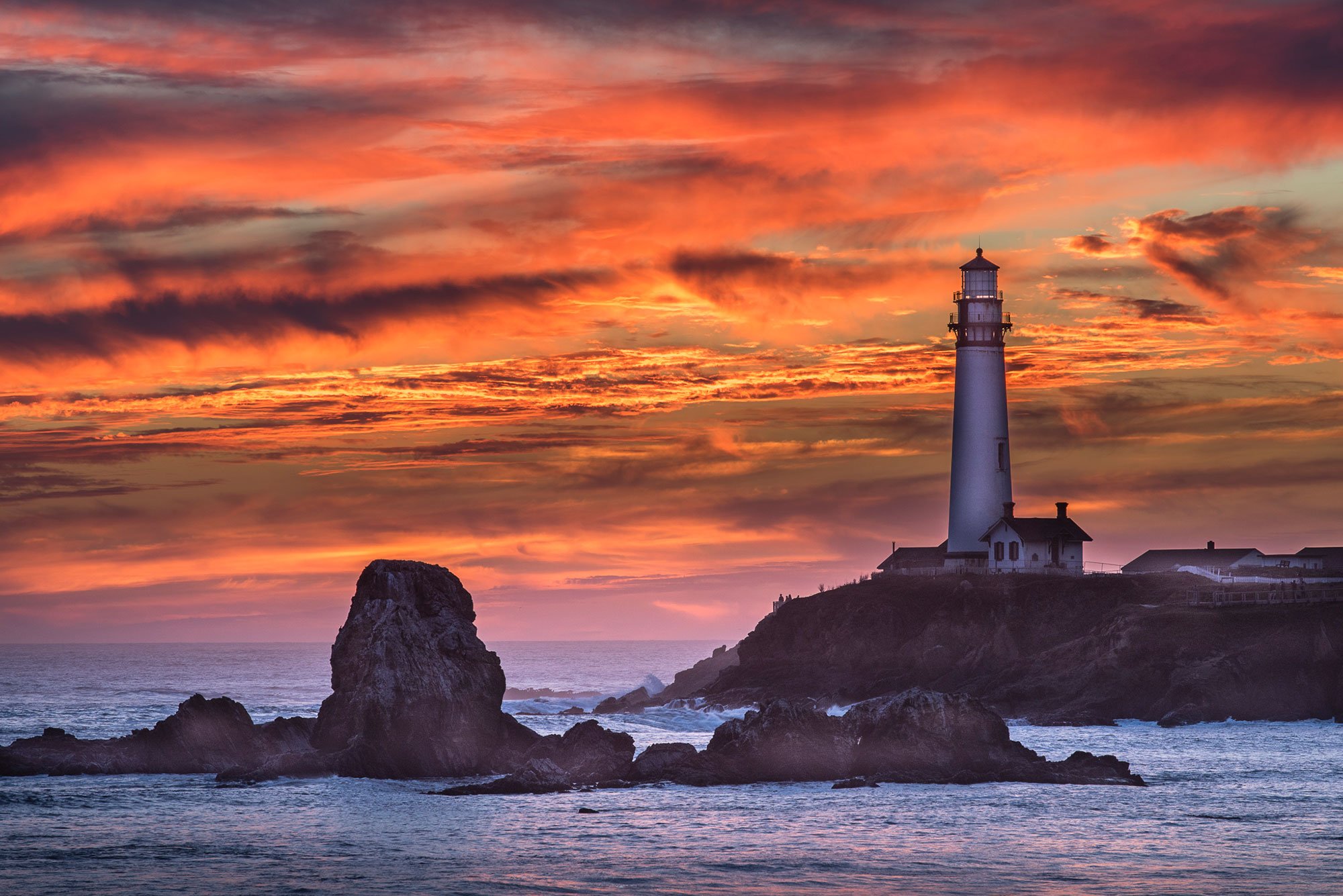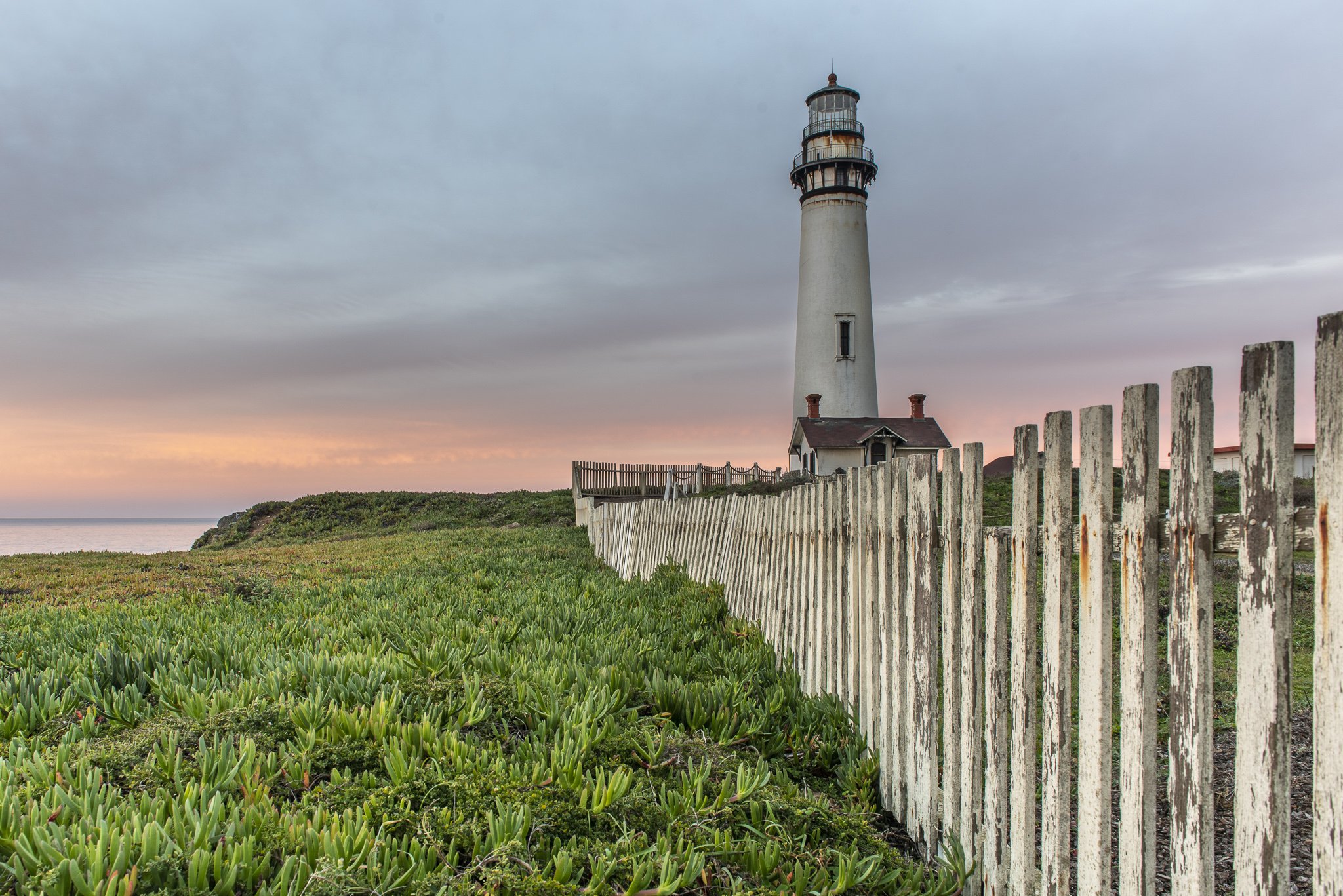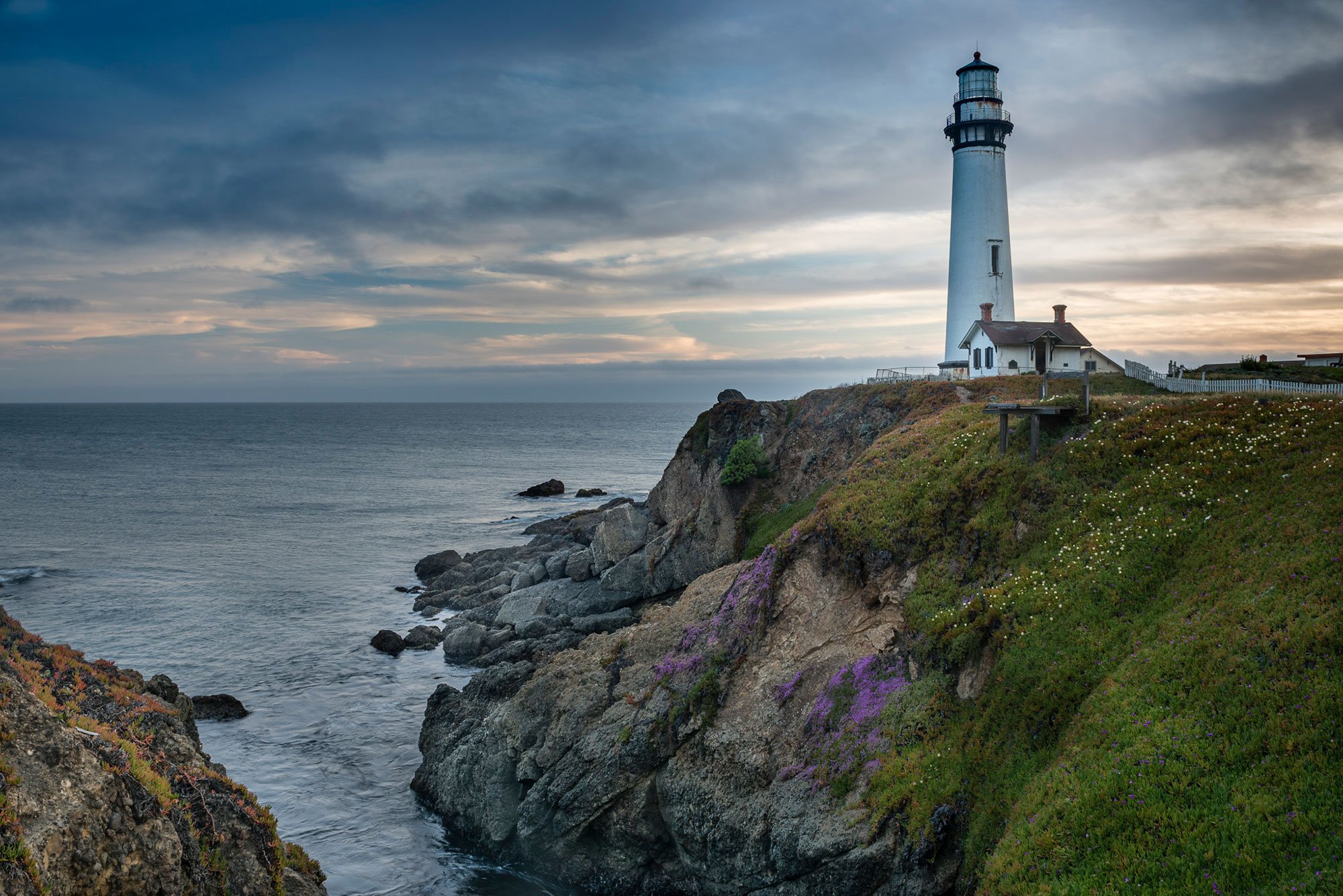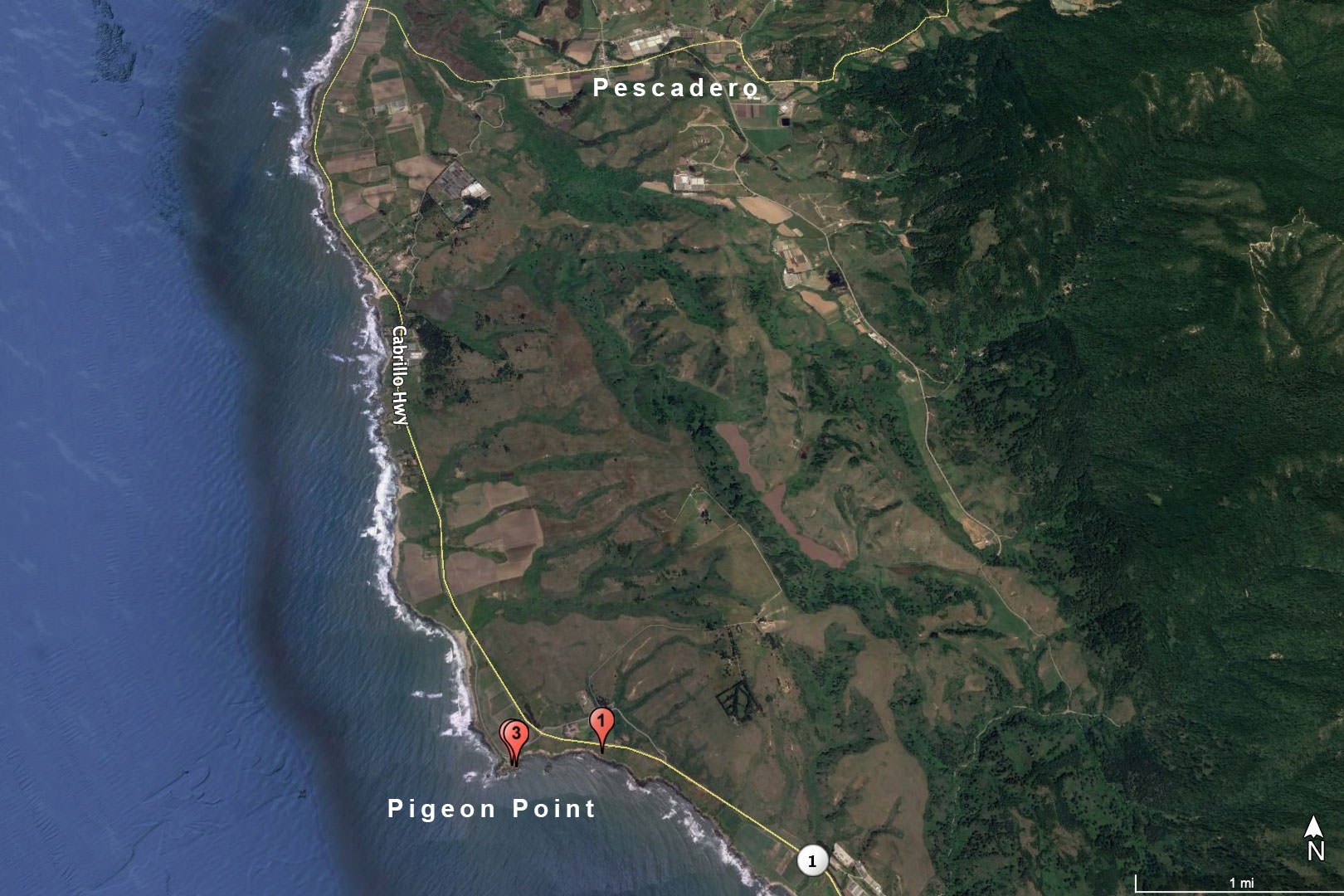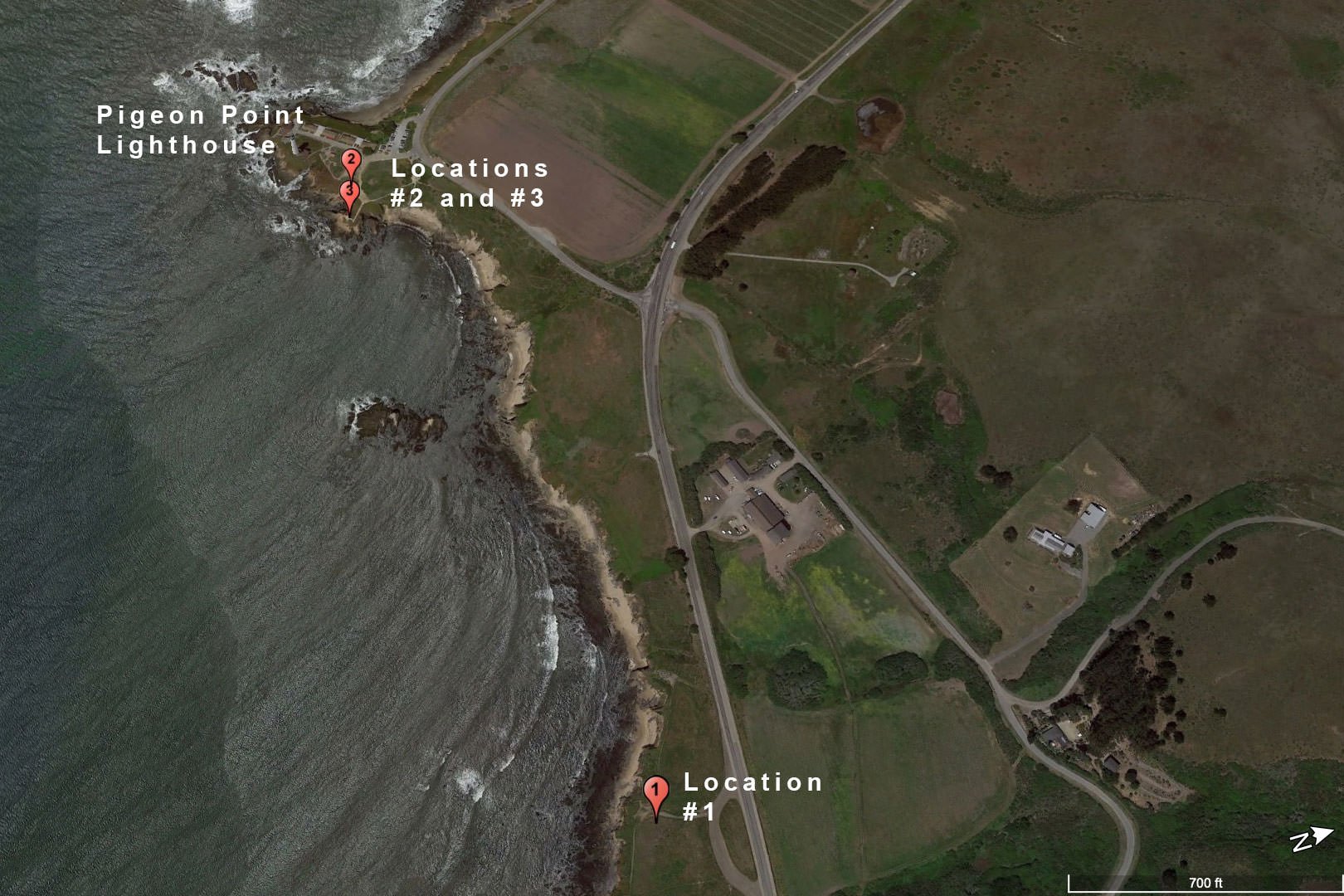Pigeon Point Lighthouse
Pescadero, CA
PIGEON POINT LIGHTHOUSE
A BRIEF SUMMARY OF PIGEON POINT LIGHTHOUSE
Built on a coastal cliff 50 miles south of San Francisco just past the small coastal town of Pescadero along Hwy. 1, Pigeon Point Lighthouse is picturesque lighthouse that has been in operation since 1872. It’s one of the tallest lighthouses in the country, and now uses an automated LED beacon instead of the original Fresnel lens. The lighthouse takes it name from the ship Carrier Pigeon that wrecked here in 1853.
There are several different places from where you can photograph the lighthouse, from the Pigeon Point Lighthouse State Historic Park premises to a few locations on Hwy 1 that are both south andr north of the lighthouse. This image was captured from the Pigeon Point Viewpoint Parking Lot, which is about half a mile south on Hwy 1.
Photos and location summary by Jan Arendtsz
Annual Subscription
Lifetime Membership
DATA POINTS INCLUDED WITH PIGEON POINT LIGHTHOUSE SUMMARY
I would rate the difficulty of this trail as a 1 on a scale of 1-5 (with 5 being most difficult).
Once you get to the Pigeon Point Viewpoint Parking, there is a short trail that skirts the coastal bluff from the gravel parking lot. This image was captured from this trail at the edge of the bluff near a very steep trail leading down to the beach below. Note that the trail going down is very steep and slippery -- my advice is not to attempt the hike down.
Pigeon Point is a beautiful location with many interesting possibilities. As seen from the photos, the many different perspectives include shooting from a distance from the dirt parking lot past the lighthouse further south on Hwy 1, from within the premises of the lighthouse, and also several other locations further north of the lighthouse on Hwy 1.
Given the endless locations and compositions, you should bring lenses ranging from ultra-wide to shoot close to the lighthouse to zoom lenses up to 200-300m to shoot from various locations on Hwy 1.
Location #1 was taken with a 200mm lens.
Location #2 - this image uses the white fence as a leading line in the foreground for the right half of the frame to lead to the lighthouse with the green vegetation on the left as a counterbalance. I placed the camera right next to the fence and a couple of feet above the ground to capture this perspective. Keeping the camera low to the ground is important to capture the fence in a way that it fills the frame. I used a 24mm focal length, and given the short distance to the lighthouse, this image requires an ultra or regular wide-angle lens. With an ultra-wide lens, you can fill up more of the frame with the fence for a slightly distorted perspective.
Location #3 - this image frames the lighthouse on the right third of the screen so that the middle of the image can capture the descent from the lighthouse down to the ocean and capture the little cove on the left. The image was taken towards the edge of the bluff, and there is space for slightly different compositions at various points along the pathway. I used a 24mm focal length for this image, and given the short distance to the lighthouse, these images require an ultra or regular wide-angle lens.
Sea Level Ft. Elevation
Other Resources Available with Membership
KMZ Trail File
Directions
Best Time of Day to Shoot
Best Time of Year to Shoot
Equipment Needed
Permits Required
Direction of Shot
Google Maps Birds-Eye-View
Number of Photographers to Expect
Cell Service
Overnight Lodging/Camping
Nearby Restaurants
Area Guides and Workshops
Other Resources

